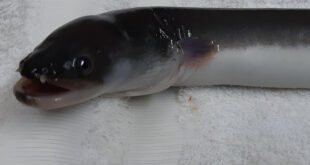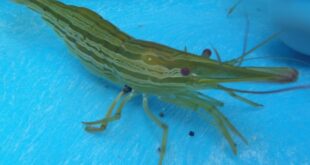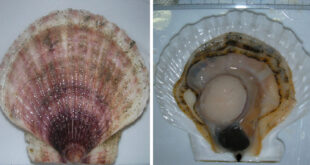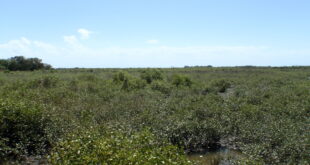By Development Communication
(Front row) Ms. Ursua, Ms. Tornalejo, Dr. Azuma, Prof. Arai, Prof. Takagi, Dr. Ayson, Mr. Catedral and (back) AQD staff during the seminarThrough the Japan Society for the Promotion of Science – Asia-Africa Science Platform (JSPS-AASP) program, Hokkaido University had been supporting the research done by some AQD staff by providing a proper venue for their study. During the seminar, four papers (3 AQD and 1 Hokkaido University) were presented. The topics includes fatty acid profiles in abalone fed artificial diets supplemented with different enrichment products, identification of bacterial species in biofilm on settlement plates for abalone larvae, genetic studies on species identification & population structure of seahorse for stock enhancement and the various achievement in abalone and seahorse studies by the JSPS-AASP program. These studies attest to the successful collaboration between two institutions.
The partnership of AQD and Hokkaido University will continue as Prof. Yasuaki Takagi presented three more programs that AQD staff can participate in, including the JSPS-DOST Bilateral program, Asia-Africa Science Platform program, and RONPAKU (Dissertation, Ph.D.) program.
“Try to be aggressive!” AQD Chief Dr. Felix Ayson said during his message, as he addressed the prospects and constraints in collaborating with foreign universities and other partners. He encouraged the young technical assistants to study and work harder to become a bonafide AQD scientist in the future.
The presenters: AQD technical assistant Ms. Jilla Alcade-Tornalejo, AQD senior technical assistant Mr. Demy Catedral, AQD researcher Ms. Shelah Mae Ursua and Hokkaido University Prof. Katsutoshi Arai Hokkaido University’s Prof. Arai, Prof. Yasuaki Takagi, AQD Deputy Chief Dr. Teruo Azuma and Chief Dr. Felix Ayson SEAFDEC/AQD Southeast Asian Fisheries Development Center | Aquaculture Department
SEAFDEC/AQD Southeast Asian Fisheries Development Center | Aquaculture Department



